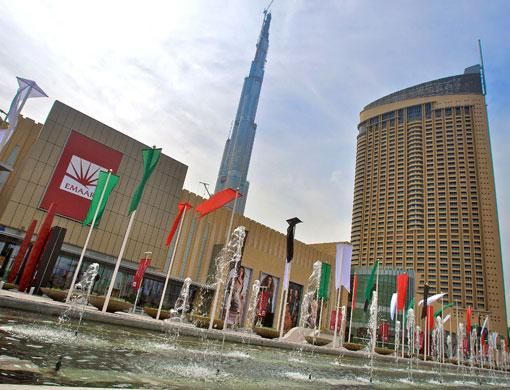Vienna/Dubai: Emaar's Dubai Mall that opens on Tuesday in Dubai is a new milestone in the history of shopping malls.
Being the biggest mall ever on the planet, Dubai Mall is supposed to define a new culture of shopping and entertainment not only under the hot sun of Dubai, but also for similar developments all over the world.
But is there really a "history" of shopping malls in the sense of an architectural concept, urban planning and creation of lifestyle trends?
There is. You may be surprised shopping malls are not an invention of smart American developers to cater to a keen-to-consume middle-class that grew out of the rising wealth of post-war America.
It may have been the US where shopping malls were first built, where the concept proved its success and from where it was exported around the globe, but it wasn't invented by Americans.
It was a Viennese architect and city planner, Victor Gruen, an immigrant to the US in the late 1930s, who transferred his - at that time - revolutionary ideas to his new host country.
Born in 1903, Gruen launched an architectural firm in Vienna as soon as he graduated from university. He propagated new design concepts for street shops and soon found interested customers.
He began to reconstruct their shops, using huge glass fronts and display windows to lure passers-by. The idea of "window shopping" was born.
Later on, after he settled in New York, he started to rebuild the street facades of fancy Fifth Avenue boutiques, and soon became a prominent storefront designer.
In 1947, he delivered the sketches for the world's first supermarket with a parking level on the rooftop in Los Angeles.
And in 1952, after he founded his company Victor Gruen Associates that shortly became a architectural powerhouse with 300 employees, he built his first fully-loaded shopping centres in Northland, a suburb of Detroit and Northgate, near Seattle.
Community life
Gruens idea was to improve community life in America's bleak suburban regions around the cities, says Annette Baldauf, a Viennes sociologist who reminded of Gruen's life and work at a speech at Vienna's International Research Centre for Cultural Science last week.
He wanted to animate the wide, low-structured stretches of American suburbia by placing "shopping towns" at certain intersection points.
"He was a man with great visions," says Baldauf. "He was one of the most influential city planners in history. During his strenuous life he built about 15 million square metres of shopping area."
He pursued gigantic projects designed to combine commercial activities with the needs of a civil society by providing isolated suburban housewives and retirees and bored teenagers a place to meet and linger.
In 1956 his first fully enclosed shopping mall was build south of Minneapolis city. It was the first of its kind, comprising hundreds of shops, a school, an auditorium and an ice rink.
Though it was not always easy to find investors for his big projects, Gruen convinced them by promising the "materialisation of shopping dreams" for masses of people and huge returns out of the "temples of consumerism", says Baldauf. Nevertheless, Gruen himself hated shopping at all, she adds.
Later, realising that heavily business-driven mall concepts began to overshadow his early ideas of a shopping mall as place to socialise, rest and meet fellow citizens, Gruen began to adopt the mall archetype for city centre locations, maybe having the centuries-old concept of Arabian bazaars and Souqs in mind.
After having launched several city malls with success, he even started to layout complete new town concepts for Forth Worth (Texas), Kalamazoo (Michigan), Fresno (California) and others.
Since then many of the so-called city malls have been built in metropoles around the world and are still being built especially in thriving cities like Dubai.
Temples of consumerism
- 1950 Northgate Mall, Seattle
- 1954 Northland Centre, Detroit
- 1956 Gulfgate Mall, Houston
- 1956 Southdale Mall, Edina, Minnesota
- 1965 Greengate Mall, Greensburg, Pennsylvania
- 1971 Lakehurst Mall, Waukegan, Illinois











